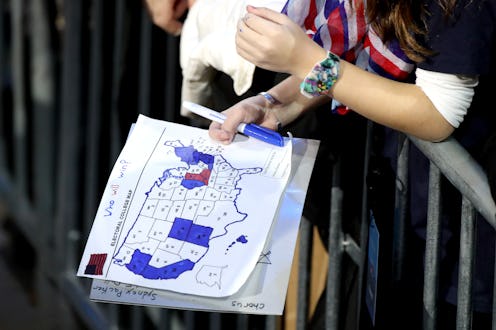
On Sunday's episode of Last Week Tonight, John Oliver dedicated his main segment to explaining the perils of gerrymandering as well as proposing possible solutions to it. During this segment, Oliver explained how "packing" and "cracking" work, providing audiences with insight into how legislators strategically break down legislative districts to obtain certain advantages.
According to Oliver, gerrymandering is defined as "drawing voting districts in a way that creates unfair advantages for whoever happens to be drawing the line." Oliver explained that politicians engage in gerrymandering for a variety of reasons, including to disenfranchise voters on the basis of their race or political preference (in a way that is advantageous to their own party) or to render districts move favorable to incumbents.
Oliver reported that, shockingly, legislators themselves are often the ones responsible for drawing the very districts whose voters will elect them, presenting a pretty evident conflict of interest. Two of the most common strategies legislators use to create districts which are favorable to their respective parties are known as "packing" and "cracking."
The goal of both packing and cracking consists of diluting the voices of voters who are oppositional to your own party. "Packing" involves overly saturating one legislative district with the opposition party's voters so that their influence is limited to the confines of one district, making your party more likely to get elected in multiple districts. "Cracking" involves splitting the opposition party's voters into many districts as a way of minimizing their impact; if opposition voters are spread thinly across many legislative districts, they will have little influence in any one legislative district, again increasing the possibility of one's own party getting elected in any given district.
Thus, both packing and cracking are gerrymandering strategies politicians use to enhance their party's chance of winning elections while diminishing the opposition party's prospects. Packing and cracking for partisan purposes is not technically illegal (despite its absolutely questionable nature); however, packing and cracking to disenfranchise people on the basis of race or other identifying characteristics is illegal. That being said, the line between partisan packing and cracking and that which intentionally seeks to diminish the voices of minority voters is often quite thin. Indeed, last month a Texas district court ruled that the packing and cracking conducted by state legislators in the redrawing of Texas' legislative districts was unconstitutional because it "used race as proxy for voting behavior" and had the "intent of diluting minority voting strength."
Oliver found the whole practice of gerrymandering and packing and cracking unacceptable and, resultantly, suggested that establishing independent commissions to draw state legislative districts could constitute a more unbiased way to create representative districts. While it is unclear whether independent commissions will ever become a reality, it is patently obvious that packing and cracking and other gerrymandering practices produce districts that do not accurately represent the voices of states' constituents. Hopefully Oliver's segment has served to bring increased attention to this vastly important issue.